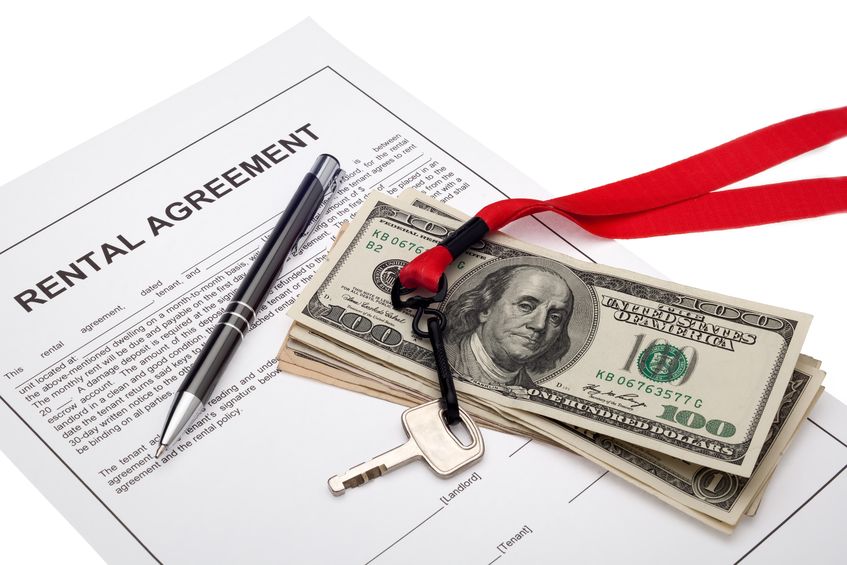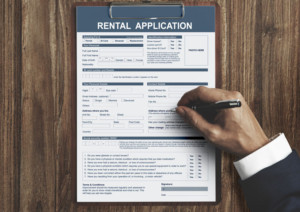Things to Consider Before you Rent your First Apartment

 Getting ready to move out of home and into your first apartment is super exciting. It’s also a really big, intimidating change. There are so many things to consider that you’ll probably be left with your head spinning.
Getting ready to move out of home and into your first apartment is super exciting. It’s also a really big, intimidating change. There are so many things to consider that you’ll probably be left with your head spinning.
Here are important things to think about BEFORE you start your apartment-hunting process. Thinking about these things now can save you from making a lot of time-consuming or expensive mistakes later.
1. Upfront costs
You’re going to have to pay rent, and then you’re good, right?
Not at all. You’re going to have spent a lot of money before you’ve even moved into the apartment. Between application fees, your security deposit, and often having to pay a month’s rent in advance, you’re going to be out a lot of money before you’ve even moved in. Plan to have a couple months’ rent in advance to cover everything upfront.
2. Long-term costs
But once you get into the apartment, it’s just the rent, right?
Again, no. You’ll probably have to pay some utilities, so budget for heat, gas, electricity, and internet. Some of that might already be included in the rent depending on the building, so make sure that you get that figured out ahead of time. A lot of landlords will require renters insurance, so while it’s not a large cost, you’ll need to consider that.
Don’t forget the costs of the rest of your life. You might make enough to cover rent, but there are a million other little costs, both directly related to the apartment and not. You’re now responsible for groceries, gas for your car, and a million other little expenses you need to take into consideration. As a rough rule, rent should be only about a third of your income – many landlords won’t rent to anyone who makes less than that.
3. What you need
Furnishing a brand-new apartment is exciting, and you’re full of ideas about how you want your new place to look. Before you go wild with decoration, however, make sure you have the basic furniture you’ll need to live. Eating take-out on the floor or chili out of a frisbee feels very cool and devil-may-care … for about a day. After that, you’ll wish you had a table. And dishes.
Here’s a quick list of the basic furniture you’ll have to bring in (a more extensive list is here): A bed, a couch, a table, and some chairs. In addition, there are little around the house items you probably won’t have but will want. These include things like towels, shower curtains, and utensils. Cookware is a must, as well, unless you want to be perpetually tied to delivery and carry-out food.
4. What You Don’t Need
You might be tempted to take every little knickknack and item you’ve ever collected with you to your new place. This makes your apartment feel well-stocked and lived in early on, but there are two problems here. For one, it’s a lot of junk to bring along with you. It also starts to get in the way of cleaning and making the apartment actually look good.
Instead of moving everything from back home with you when you head into your first apartment, use moving as a chance to purge. Have an honest conversation with yourself about whether you’re holding on to items because they’re useful, or because you’re reluctant to let go. Donate, throw away, or recycle anything you don’t really need – you’ll be glad you did down the line.
5. Get your priorities straight
You might be tempted to take every little knickknack and item you’ve ever collected with you to your new place. This makes your apartment feel well-stocked and lived in early on, but there are two problems here. For one, it’s a lot of junk to bring along with you. It also starts to get in the way of cleaning and making the apartment actually look good.
Instead of moving everything from back home with you when you head into your first apartment, use moving as a chance to purge. Have an honest conversation with yourself about whether you’re holding on to items because they’re useful, or because you’re reluctant to let go. Donate, throw away, or recycle anything you don’t really need – you’ll be glad you did down the line.
6. Prepare your paperwork
You’re going to have to deal with a lot of paperwork in the process of finding an apartment. This isn’t a task for the type of person who’s terrified of bureaucracy, but sometimes you just have to deal with it. Before you start really seriously looking, make sure that you have as much paperwork straight as possible. Your driver’s license or other ID is the most important, but you’re also going to need pay stubs, a resume (even if there isn’t much on it), references from anyone who could attest to your character (bosses and professors carry a lot of weight with landlords), and registration for your car are the most likely things you’ll need early on. Get this all together before you have to start filling in applications, and you’ll save a lot of headaches later.
7. Lease term
A lease is often the first legal document a young adult encounters. Although this does make the process a little bit stressful, it also makes it great practice for other contracts later in life. Learning how to read complicated legal text is a valuable skill, and skimming your lease is an awful idea. Carefully read the entire document, and don’t be afraid to ask questions if there’s something you don’t understand. Even if it takes an unreasonable amount of time, you need to know what you’re signing up for. There are going to be a lot of things you need to do, and limits on what you can do, and you’d rather know now than find out when you get in trouble for, say, painting a room when the lease expressly forbids painting.
If you want to be extra certain about the lease before you sign it, ask the landlord if you can have a few days to look it over. Then ask someone you trust, like a family member or experienced friend, if he or she can look it over with you. If anyone in your life is experienced with legal matters (particularly housing issues), they should be able to help you fully understand any confusing clauses.
8. Roommate worries
If you’re moving in with roommates , make sure everyone you’re going to be living with signs the lease. One or more roommates avoiding the lease sets you up for disaster – if they stop paying rent or decide to up and leave, there’s nothing you can do except pay on their behalf. If you’re thinking of living with someone who refuses to get on the lease, pick a different roommate.
Be careful about who you choose as your roommate. It’s easy to think that you can just live with your best friend, but living with someone is an entirely different challenge from getting along with them. If they’re irresponsible or show any other warning signs early on, you might want to find someone else.
9. Pets
Bringing a furry friend with you to your new place? Make sure you talk to your landlord about your pet – or pets – before you sign the lease. Even if the building allows pets, it might have restrictions about weight or breeds. In addition, most pet-friendly buildings require you to pay a pet deposit or add an extra pet fee onto your rent, costing you more money down the road. It’s worth it for your pet, but it’s also good to know ahead of time.
In addition, make sure your apartment has plenty of room for Fido or Felix. If you’re bringing in a dog with lots of energy, they’ll need plenty of room to run around and go outside regularly. Even cats call for extra space – have a plan for where you’ll put things like food, water, and the litter box before you decide on a unit.
10. Location, location, location
Before you pick an apartment building, give real thought to where it’s located. Ideally, you’ll be close to the essential shops and services you’ll need, like grocery stores and restaurants. How close depends on your lifestyle. If you’re comfortable driving most places, within a couple of miles should do. If you’d rather walk, try to make sure you’re no more than a mile away from the important stuff.
11. Moving Plan
Moving is hard work, and you’re not going to enjoy trying to do it on your own. If you have friends who are free on your move-in date, ask them if they’d be willing to help. This is going to be your cheapest option – traditional friend payment is pizza and beer, and the promise to help next time they move.
If your friends are busy, you may want to hire a moving company. While they’re expensive, they’re also professionals who have moved people a thousand times before, so they know exactly what to do. You might not think it takes a lot to know how to pack a truck and carry boxes, but they take so much less time than moving things yourself with your inexperienced friends.
12. Organization
Unless you’re moving into an apartment with an abundance of closet space, you’re probably going to need to come up with your own storage solutions. One of the best things you can get is under-bed storage bins. As the name suggests, these slide neatly beneath your bed and live totally out of sight. This is the perfect place to store out-of-season clothes and other small items.
If the storage can’t be hidden away, try to find things that look good. One way you can sneak storage into your decor is to use an old trunk for your coffee table. It will look totally cool, and you can use it to store away infrequently used items. Bookshelves work well for storing things that are decorative on their own, like figurines, ornaments, and, of course, books.


Join The Discussion